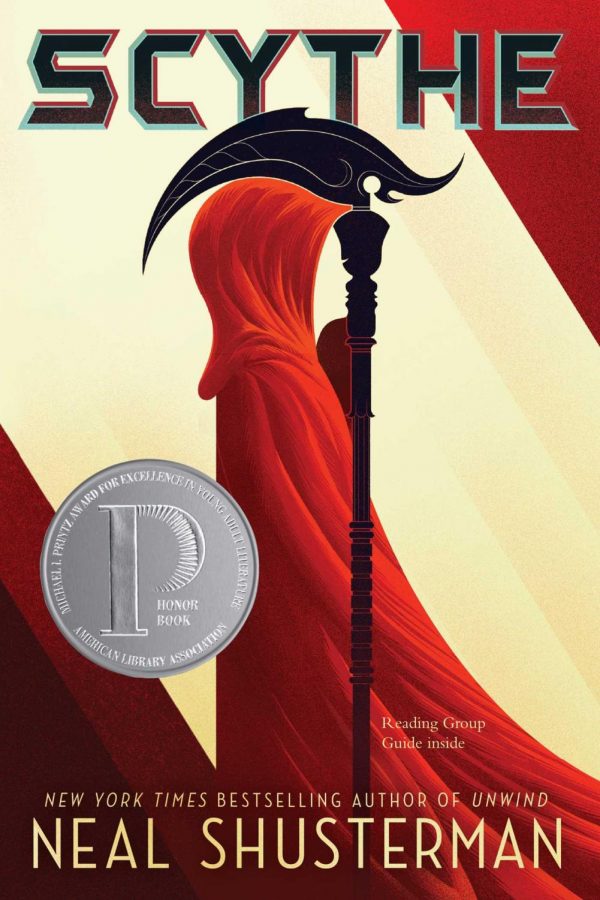‘Scythe’: A utopia that fails to be perfect
Would you take the chance to go to a world where there is no longer any more hunger, illnesses, warfare and misery? In “Scythe” by Neal Shusterman, the world seems to be perfect. Everything has been perfected—even death is no longer an issue.
Citra and Rowan, two teenagers of different backgrounds, are chosen to be apprentices to a scythe. A scythe’s job is to kill people, so naturally, neither of the two are excited to train for such a career.
The two teenagers will learn the “art of killing.” They will learn to differentiate poison from poison. Citra and Rowan will be taught fighting techniques, and they will be able to name a number of weapons.
Unknowingly, Citra and Rowan are getting into more than what they thought when they find out how deranged the society of scythes actually is.
“Scythe” shows a world where scythes are in charge of who lives and who dies, but some of the scythes within the society are corrupt in their methods. Shusterman takes an interesting approach to a utopian world, showing how a “perfect” world is never what is seems to be.
Citra and Rowan are the two main characters, and although they are way different from each other, they are connected with their apprenticeship and their feelings towards each other.
Citra is strong-willed, and she stands up for what she believes in, no matter the consequences. Rowan is more complex, as he is put in a more difficult situation, and the choices he will have to make will affect everyone around him.
There is a slight mystery to “Scythe.” As Citra and Rowan find themselves in a predicament, they are kept guessing, along with the audience, to figure out what happened in the death of a character. Shusterman keeps the readers engaged while adding turns of events that are hard to predict.
The pace of the book is quite fast. In just the first book, a year will pass. The formatting is different than the typical young-adult fiction book. Each chapter starts off with a journal entry from a member of the scythedom. These help show the political issues within the society of scythes, but the issues don’t overshadow the rest of the book.
Citra and Rowan do gain feelings for each other, but it is a forbidden love. From the moment they first met, their mentor had warned them about becoming anything more than friends. And when a competition arises between them, it proves to be more difficult to maintain a healthy relationship where it is least expected from those in the scythedom.
The theme of death is noticeable in “Scythe” while hinting at important questions.
“Scythe” takes on an interesting approach to a utopia that does not fail to leave questions about a ‘“perfect” world. The book shows the ugly side of a utopian world and shows how an idealistic world is not ideal for everyone. There will never be a world where everyone agrees, and that’s okay.
 (4 / 5)
(4 / 5)



